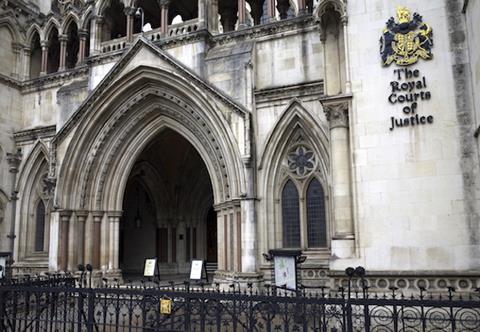
The High Court has ruled against Royal London in a pensions transfer case, overturning the Pensions Ombudsman’s earlier determination in favour of the mutual life and pensions provider.
In the case of Donna-Marie Hughes vs The Royal London Mutual Insurance Society, Hughes requested to transfer her benefits from her personal pension plan to a small self-administered scheme (SSAS), the Babbacombe Road 1973 Limited SSAS, in 2014. A trust was established by Babbacombe Road 1973, defined as the 'principal employer', and Hughes was defined as the 'trustee'.
Hughes was 41 when she made the transfer application and her pension plan with Royal London was worth almost £8,360.
Royal London refused to make the transfer on the basis that it did not consider Hughes to have a statutory right to transfer and because it had concerns about the status of the receiving scheme, the proposed investment and the level of advice the pension holder had received.
Hughes argued that it was unjust for Royal London to deny her transfer right, lodging a complaint with the Pensions Ombudsman.
In June 2015, the Ombudsman found that Royal London’s refusal to make the transfer was consistent with the law. It determined that Hughes had no relevant earnings from an employer connected to the receiving pension scheme and therefore could not be considered an earner, meaning that she had no statutory right to take a cash equivalent transfer value from her pension to the receiving scheme.
Hughes successfully appealed the decision at the High Court.
On 19 February 2016, the Court found that Hughes could be considered an earner by reasons of her earnings from other sources and she was therefore entitled to require Royal London to transfer the cash equivalent of accrued rights from her personal pension scheme.
The Pensions Ombudsman stated: "[The ruling] provides instruction to trustees and administrators that, assuming the other requirements for a statutory transfer right are made out, members do not need to be in receipt of earnings from an employer sponsoring the occupational pension scheme to which they wish to transfer their pension. Earnings from another source are sufficient.
“It seems likely that most transferring members will meet this requirement so, beyond verification of earnings and the provision of risk warnings, trustees and administrators will be conscious that under current legislation they cannot refuse such a transfer, even if they have significant concerns that it may be for the purposes of pension liberation.
“Members with similar complaints will benefit from the ruling but should note that providers may need to seek further information and wish to ensure the risks are fully understood, before a transfer is made.”
Ben Fairhead, lead legal advisor to Royal London, pensions litigation partner at Pinsent Masons, added: “The consequences of this ruling are far reaching and could leave pension scheme members more exposed to the risk of scams.
"It will now be far easier for individuals to move their money from legitimate schemes, ultimately leading to a potential influx of monies into suspicious schemes as the hands of those being asked to make transfers are increasingly tied by the inflexibility of the law."











